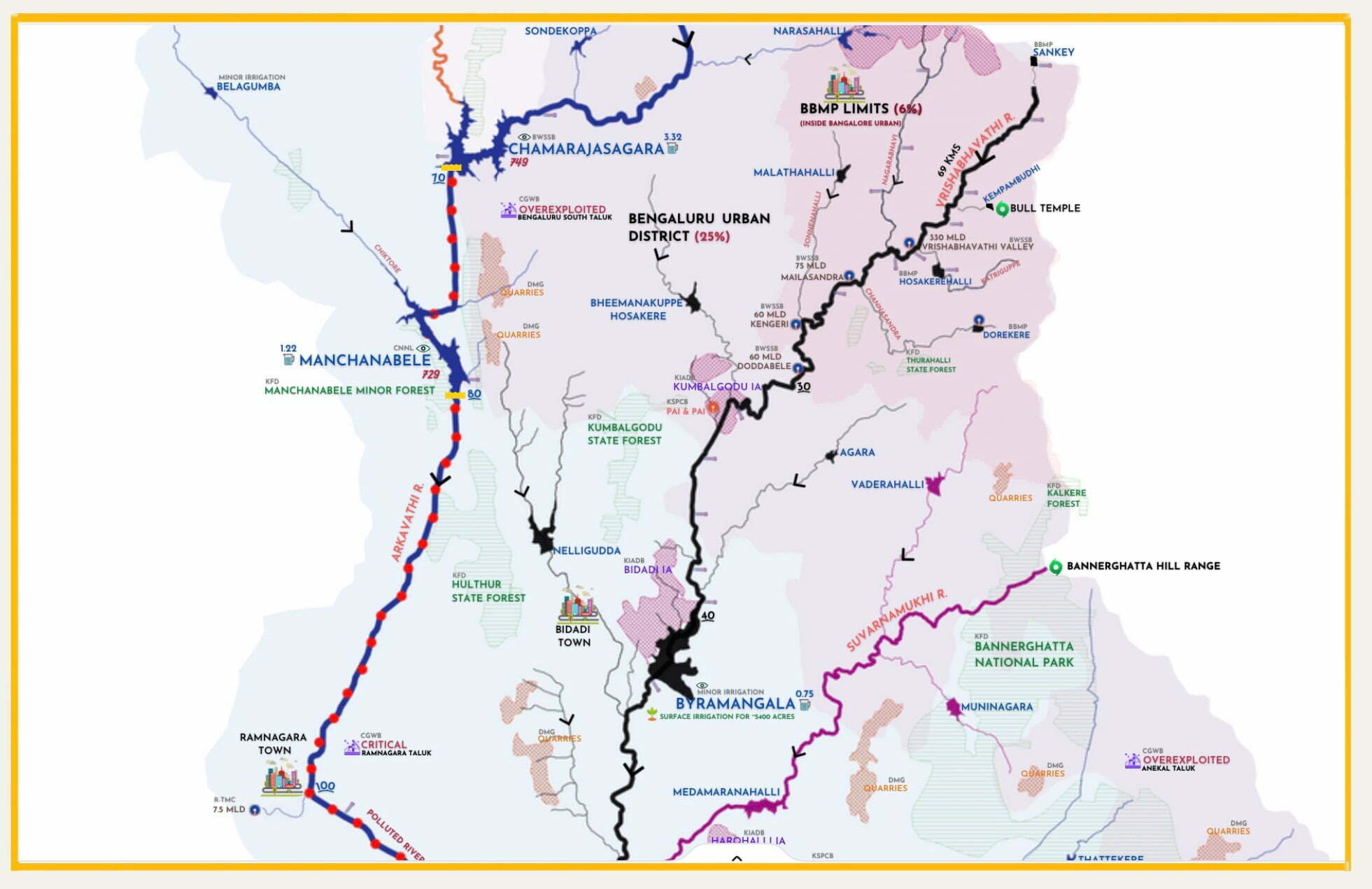Cauvery river is the lifeline of Bengaluru’s economy. Before Cauvery, it was Arkavathi. Running dry and polluted for almost half a century, Arkavathi is biologically dead. It stands as living proof of what is to come for Cauvery, if not already. A victim of Bengaluru’s urban-industrial society, Arkavathi today is a shadowy semblance of a former glorious river. It is a ghost river.
Key to understanding rivers
The Arkavathi river basin stressors map shows a wide range of human stressors affecting Arkavathi: Dams, Industrial clusters, Sewage treatment plants, Effluent treatment plants, Hazardous waste Landfills, Urban centers, Open-pit quarries, Hydropower plants, and polluted river stretches. It shows the proximity of quarries to major dam infrastructure. It shows back-to-back dams. This map is relevant to policymakers, lawyers, researchers, academicians, students, and citizens interested in conserving the Arkavathi river.
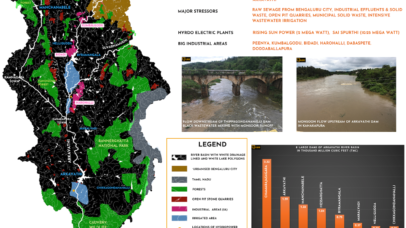
IN A NUTSHELL
A summary representation of Arkavathi river basin
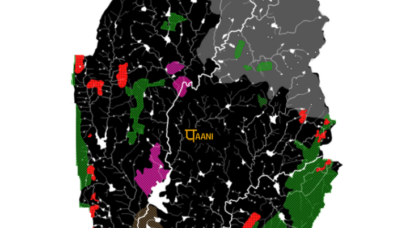
VRISHABHAVATHI RIVER
A comprehensive knowledge base of the Vrishabhavathi river, a significant tributary of Arkavathi
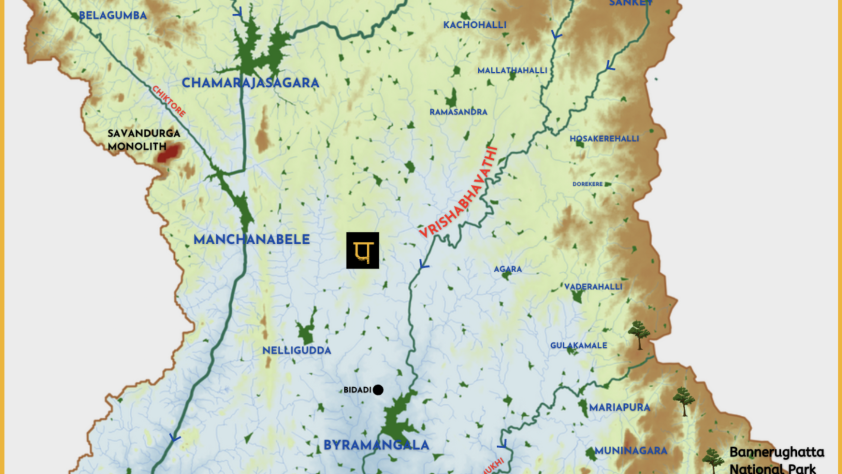
Arkavathi River Basin Hydrology
Self-explanatory infographic shows the surface hydrology overlaid on topography
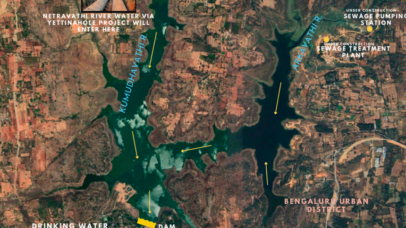
Thippagondanahalli Reservoir Profile
Provides data on Thippagondanahalli Reservoir
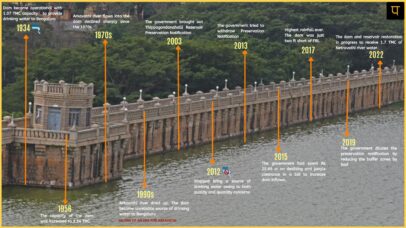
The rise and fall of Thippagondanahalli Dam
The reservoir's journey from being Bengaluru’s source of water to Bengaluru’s sink for waste
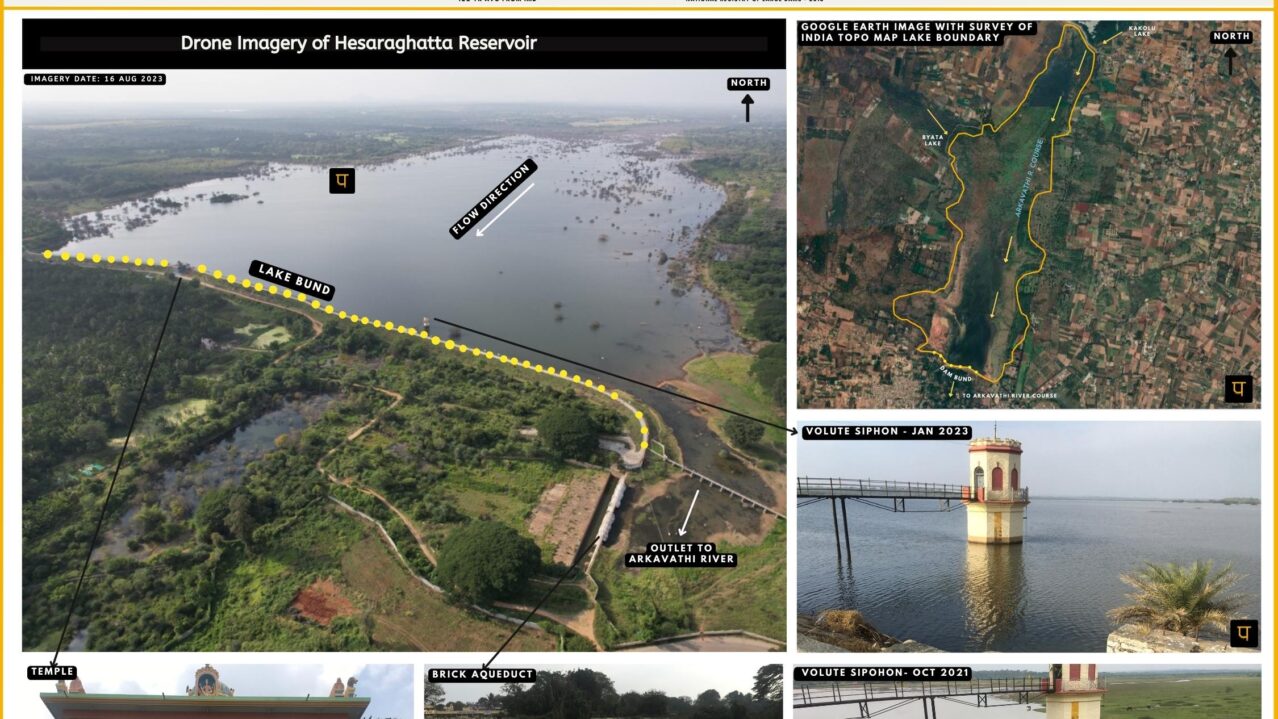
All about Hesaraghatta Lake Catchment
Data & analsysis of all things related to Hesarghatta reservoir & its catchment
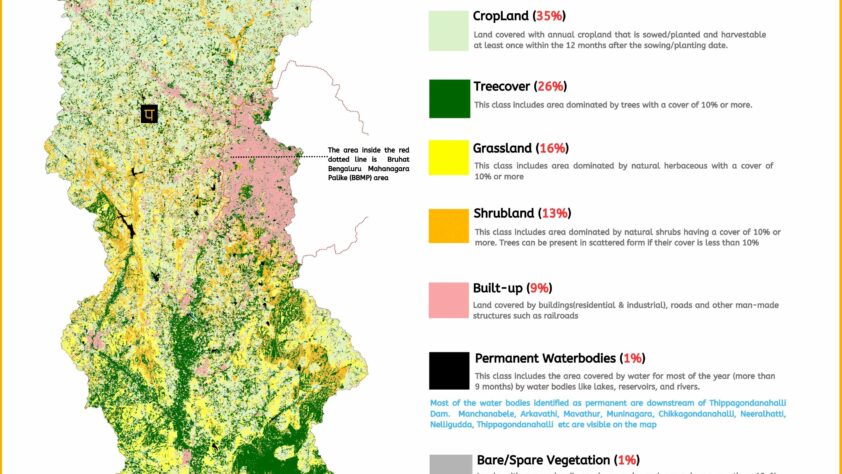
Arkavathi Basin Landcover
Extracted from European Space Agency’s (ESA) WorldCover 2021
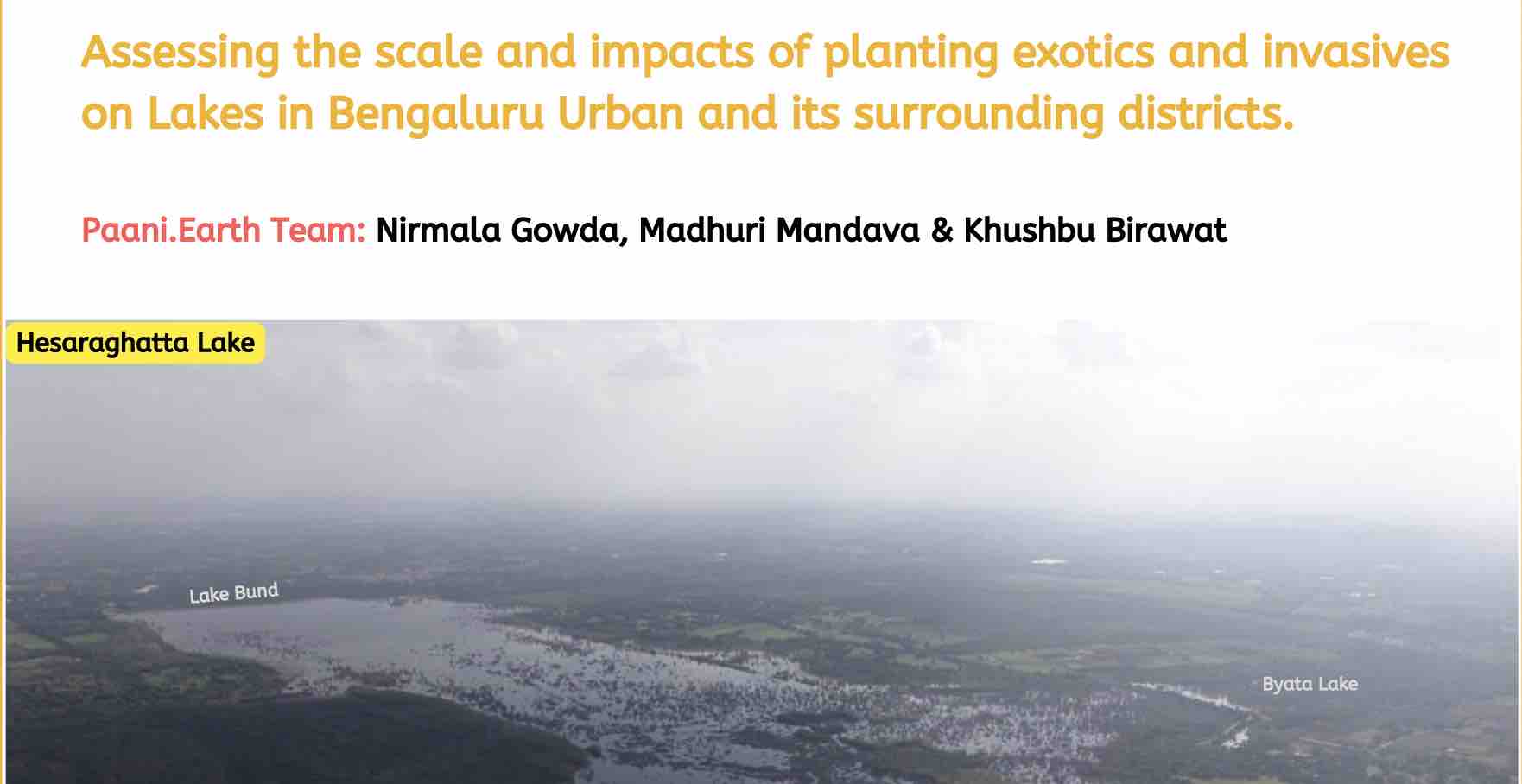
Report
Assessing impacts of planting exotics and invasive trees on Lakebeds.

RIVER BASIN

DAMS & FLOW

POLLUTION

GROUNDWATER

STRAWS

BIODIVERSITY

RAINFALL FLOODS & DROUGHT

RESTORATION

